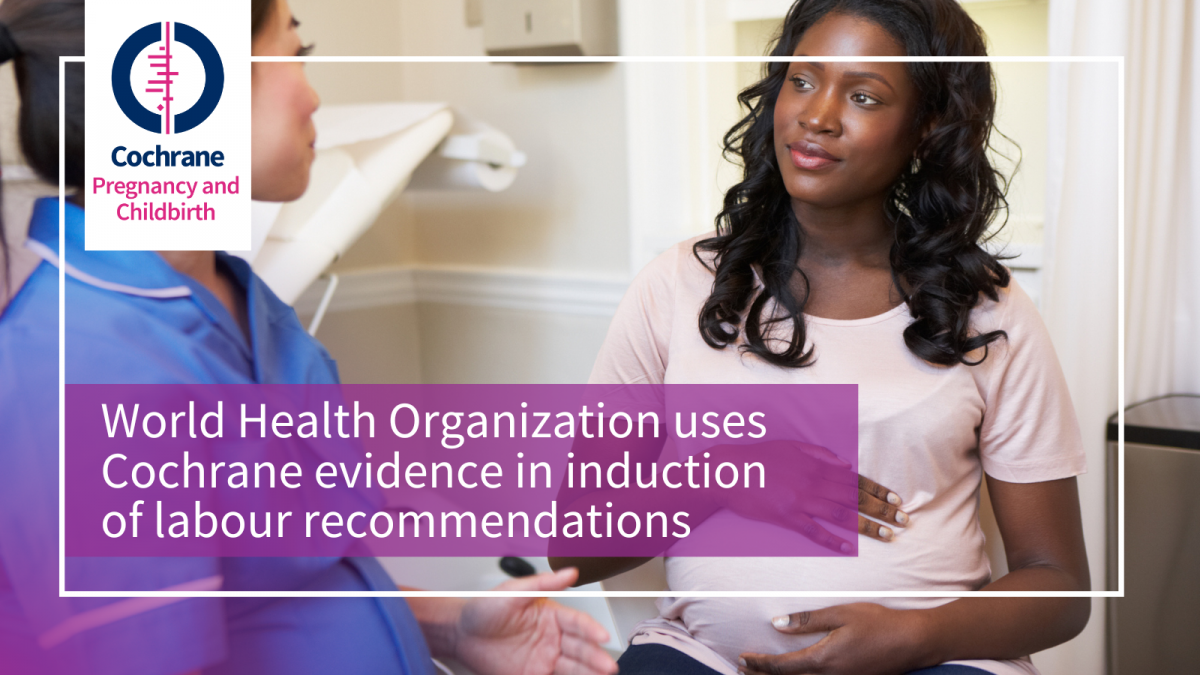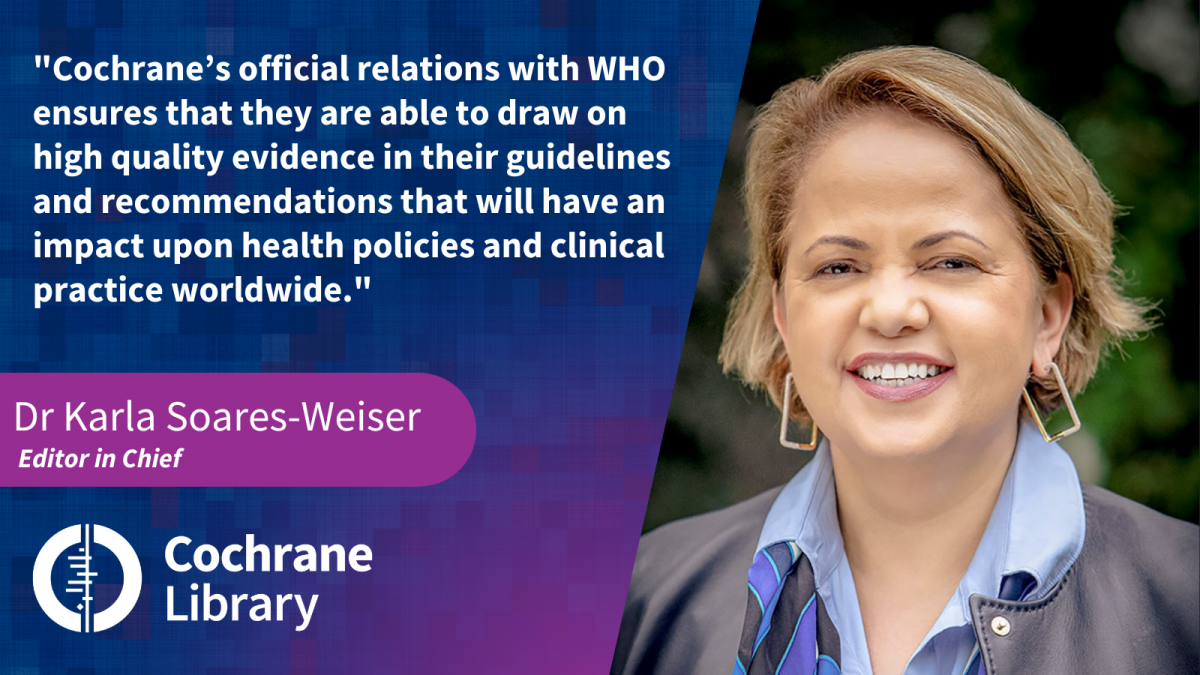
The World Health Organization (WHO) has issued updated recommendations on the induction of labour which is supported by evidence from Cochrane Pregnancy and Childbirth.
WHO develops global health guidelines, which are of a high methodological quality and are developed through a transparent, evidence-based decision-making process. Ensuring there is an appropriate use of evidence within these guidelines, represents one of the core aspects of Cochrane’s collobration with WHO. Cochrane has been a non-governmental organization in official relations with WHO since 2011.
The Cochrane Pregnancy and Childbirth Group has a long-standing collaboration with WHO on the development and updating of Cochrane reviews that inform WHO’s guidelines on global maternal and perinatal health.

The primary goal of the latest guidelines for induction of labour is to improve the quality of care and outcomes for pregnant women undergoing induction of labour in under-resourced settings. The target audience of these guidelines includes obstetricians, midwives, general medical practitioners, health-care managers and public health policy-makers. The guidance provided is evidence-based and covers selected topics related to induction of labour that were regarded as critical priority questions by an international, multidisciplinary group of health-care workers, consumers and other stakeholders.
The updated to the recommendation include:
- Outpatient settings for induction of labour
- Induction of labour, at or beyond term
- Mechanical methods for induction of labour

“Cochrane’s official relations with WHO ensures they are able to draw on high quality evidence in their guidelines and recommendations that will have an impact upon health policies and clinical practice worldwide,” says Cochrane’s Editor in Chief, Dr Karla Soares-Weiser. “It’s also a testament to the important and hard work that many in the Cochrane community are putting forward.”
